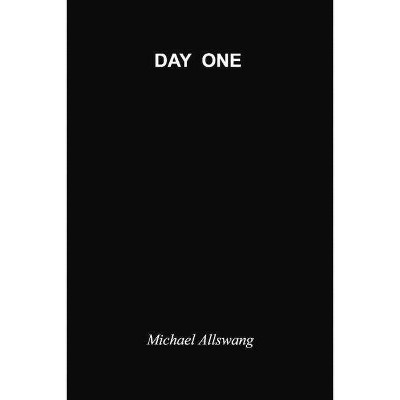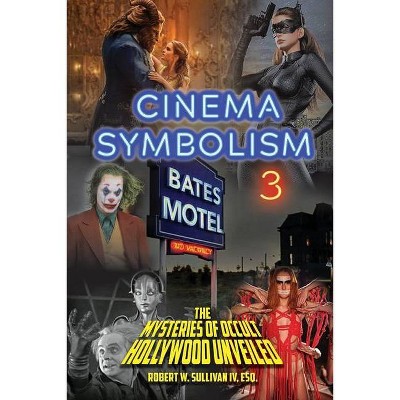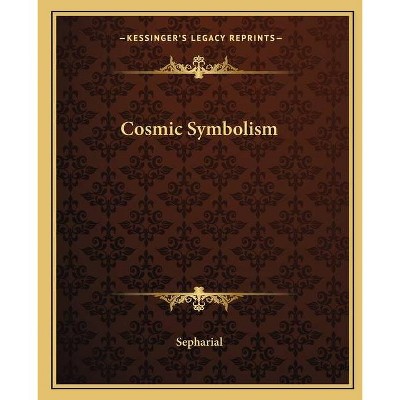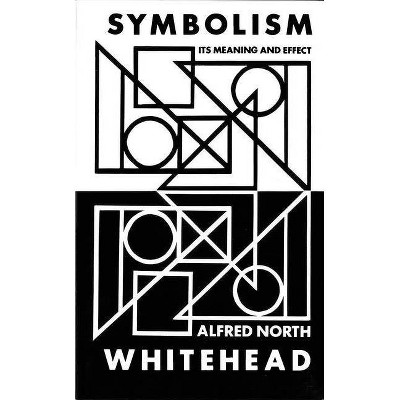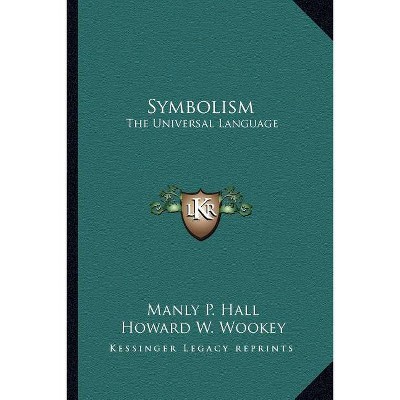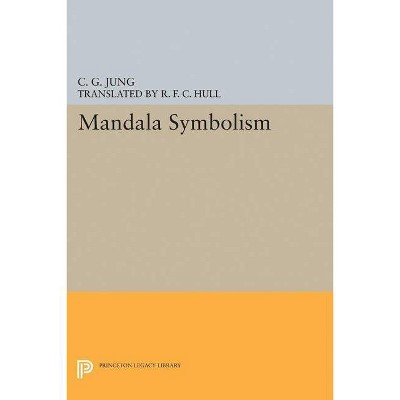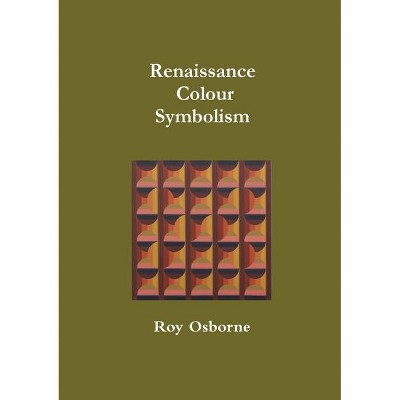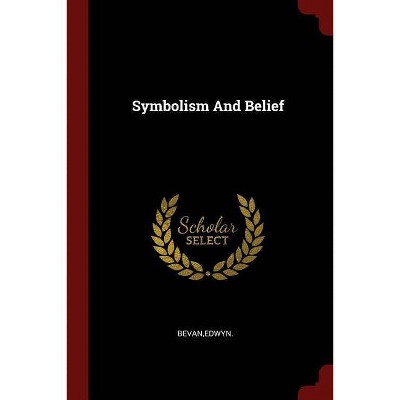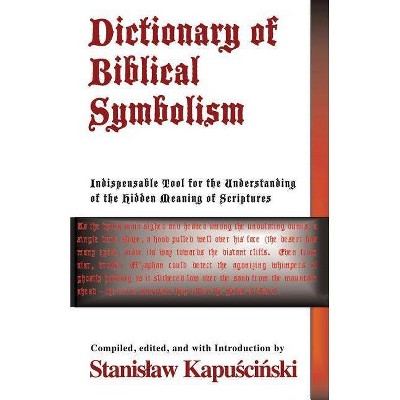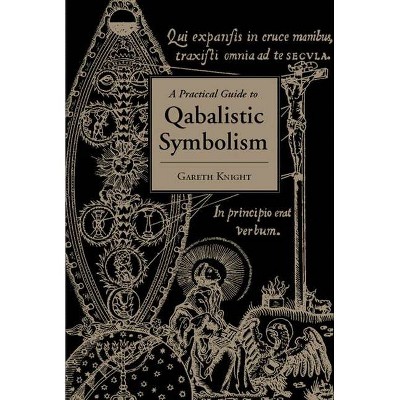Symbolism - by Michael Allswang (Paperback)
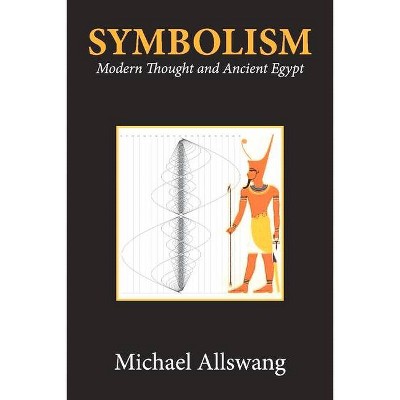
Similar Products
Products of same category from the store
AllProduct info
<p/><br></br><p><b> About the Book </b></p></br></br>From the Preface: Standing behind the words in this book, like the falcon god Horus enclosing Pharaoh in his wings, is the leitmotif of man's consciousness. After much study, reflection, and also visits to many ancient Egyptian monuments, I have come to the conclusion that the development of consciousness was the essential project of the priests of ancient Egypt, and that one of the means they used to achieve this end was the expression of spiritual truths by means of symbolism. <p/>Modern thought and ancient Egypt are both based on symbolism. While we think that our science is true, in reality it is a symbolism of mathematical equations based on theories that may or may not conform to reality. The creation of the universe by the Big Bang is no more true than the creation by the Egyptian god Atum creating the world from Nun, the chaotic watery abyss. Their conception of creation was just as true for them as our conception is for us. Both are symbols of a reality unexplainable by the reasoning mind. The symbolism of ancient Egypt, contrary to what most Egyptologists say, has to do, we believe, not only with the afterlife, but with the development of man's consciousness in this life. Modern science only deals with what can be measured, thus limiting itself to the physical plane of existence and ignoring higher levels of consciousness that cannot be measured. Ancient Egypt did not have this limitation: their so-called gods were actually symbols for cosmic functions or laws that operated on every level of existence including that within man.<p/><br></br><p><b> Book Synopsis </b></p></br></br>From the Preface: Standing behind the words in this book, like the falcon god Horus enclosing Pharaoh in his wings, is the leitmotif of man's consciousness. After much study, reflection, and also visits to many ancient Egyptian monuments, I have come to the conclusion that the development of consciousness was the essential project of the priests of ancient Egypt, and that one of the means they used to achieve this end was the expression of spiritual truths by means of symbolism. <p/>Modern thought and ancient Egypt are both based on symbolism. While we think that our science is true, in reality it is a symbolism of mathematical equations based on theories that may or may not conform to reality. The creation of the universe by the Big Bang is no more true than the creation by the Egyptian god Atum creating the world from Nun, the chaotic watery abyss. Their conception of creation was just as true for them as our conception is for us. Both are symbols of a reality unexplainable by the reasoning mind. The symbolism of ancient Egypt, contrary to what most Egyptologists say, has to do, we believe, not only with the afterlife, but with the development of man's consciousness in this life. Modern science only deals with what can be measured, thus limiting itself to the physical plane of existence and ignoring higher levels of consciousness that cannot be measured. Ancient Egypt did not have this limitation: their so-called gods were actually symbols for cosmic functions or laws that operated on every level of existence including that within man. <p/>The book is divided into two main parts, the first having to do with modern conceptions of symbolism. Included here are how symbolism is related to the cosmos and modern science, how it is used in the culture of civilizations, and how it can influence individual man by the way of religious symbols. Finally, some metaphysical principles are introduced in order to clarify further the nature of symbolism. To even begin to understand the subject matter, we must first understand what is meant by symbol, its function and how symbols are integrated into a Traditional culture such as that of ancient Egypt. The intent of the first part of the book is an explanation of my understanding of the meaning and function of symbolism, which is absolutely necessary to understand symbolism in ancient Egypt, since the role of symbolism is so very far from the purely mentally-based non-Traditional culture in which we find ourselves. To this end, the word symbol is explained in its largest sense as that by which a man can be aided in his spiritual transformation, if such is his desire. Thus, a symbol is not discussed as being limited to painted and sculptured figures, but also includes religious edifices as well as hieroglyphs and elements of myth. <p/>After introducing the subject of symbolism, Part 2 discusses symbolism in ancient Egypt proper. The purpose here is to try to put the reader, as much as can be done with the written word, in the symbolic world of ancient Egypt. Here we discuss ancient Egyptian mind and spirituality, the pantheon of the gods (or neters ), man's nature as they saw it, the role of the pharaoh, ritual symbolism, hieroglyphs and sacred texts, as well as pyramids and temples, all the while trying to illustrate the function of symbolism as a means of organizing the Egyptian culture by the priests so as to provide a Way for each individual to reach, in so far as he is capable, that inner sanctum within himself. We also introduce mythology in general, its function in relation to symbolism, and how it is a spiritual teaching. We then go into purely Egyptian mythology and put forth our view that there are not different Egyptian myths but only variations on one basic leitmotif of all myth: the removal to a faraway place from man's spiritual nature and the means by which it can be brought back to its rightful home.<p/><br></br><p><b> About the Author </b></p></br></br>Bio: Michael Allswang, after having degrees from UCLA and the University of Wisconsin at Madison, made his career as a manager of Documentation Services for software companies in the U.S. and France. At the same time, he was, and still is, an independent writer, translator, and researcher in the fields of ancient civilizations, Egyptology, psychology, and spirituality. He has published various articles on these themes in European periodicals. He is also the translator of Pierre Gordon's The Original Revelation from French into English.
Price History
Price Archive shows prices from various stores, lets you see history and find the cheapest. There is no actual sale on the website. For all support, inquiry and suggestion messages communication@pricearchive.us
